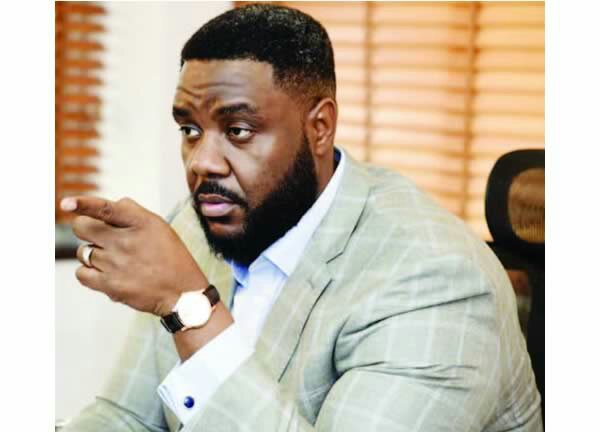News
Electricity tariff needs to be increased soon – Fadeyibi
The Managing Director / Chief Executive Officer , Eko Electricity Distribution Company Plc , Mr Adeoye Fadeyibi , tells’ FEMI ASU why the tariff shortfall in the power sector needs to be urgently addressed

The power sector privatisation clocked five years this month ; what do you think about the state of the Nigerian electricity supply industry generally?
The power sector privatisation, from a takeover perspective , clocked five years this month . The key thing for us is for all parties to be able to deliver on the performance obligations . I think over the last five years , it has been a delicate industry, especially at the distribution end where there is an interface with the customers .
Apart from the duty of being the retailers of power , the distribution companies also have the task of ensuring that appropriate revenues are collected for the product . We inherited a lot of assets that needed quite a significant amount of investment.
The issues we were raising five years ago were usually , for everybody, all around significant investments in the assets and then the turnaround time to get them even reliable enough to get us to the right level of supply .
We have spent a lot of time just investing in doing a lot of that . If you look at the metrics of safety ; the metrics of aggregate technical, commercial and collection losses for a Disco ; and the metrics of revenues for the whole industry, what you then see is a significant improvement .
I can talk about this distribution company , having taken over a year ago . We ended last year with a billing efficiency of about 86 per cent , ATC & C losses averaging about 33 per cent , and collection efficiency at 77 . 6 per cent .
Average year to date , we have gone from a billing efficiency of 86 per cent to 89 . 15 per cent . We have gone to the extent where we are now looking at the collection efficiency of 80 . 3 per cent . And now one of the key important things is that we are looking at ATC & C at levels below 28 per cent .
From our end , everybody has screamed the song of tariff increase. But it also becomes difficult even from a government side ; it is difficult for them to be able to enforce it .
We are in a regulated environment , and at the end of the day , the regulator has the difficult task of ensuring that the market rules stay in place , which they are doing under the chairmanship of Prof . Momoh, and ensuring that , as a business , we are able to continue to stick to the basic principles on increasing our level of customer awareness .
We must make those investments to ensure that our customers continue to get safe and reliable power .
One of the requirements in the performance agreements is significant investment; but five years after , it appears many of the core investors have not invested significantly to improve service delivery ; what is your take on this ?
I cannot speak for other distribution companies . In Eko , it is evident that we choose to invest . One of the reasons why I chose to come here is that it was very clear that there was a longer – term vision ; the board of the company also understand the customer base .
Understanding that we are within the customer base that knows what they want and most of them are ready to pay for what they want , we invested significantly in improving our assets , whether it is network rehabilitation and expansion , customer service , or training for staff and on- boarding new talents .
For me , having a longer – term strategy to invest is critical . We are investing in technology , including a fully functional SCADA system . If you look at our SCADA , we are going to be the only one in the country to have this ; it will be inaugurated before the end of the year . We have invested significantly .
Sometimes , you do this when you believe strongly in what you are trying to do because , with the tariff shortfall and all other factors , it becomes difficult . But we believe that if you get out reliable supply to people in a safe environment , eventually the returns that you want will come.
Your company has not been able to provide meters to all its customers . Why is this so ?
I believe this is a nationwide challenge . Yes, we have not provided meters to all our customers but we have an aggressive meter roll -out plan . We have 495 , 000 customers and we have fully provided meters to 240 , 000 customers .
We have installed 100 , 000 meters since 2013 in spite of the constraints that we face . In my opinion , it is good news that the government has come up with the Meter Asset Provider regulations ; it means that we can roll out a lot faster .
There is now a plan to roll out to more people quicker and have the investment to detect electricity theft , so that people will not have to pay more .
How would you describe the relationship between the Discos and the prospective meter asset providers?
We are working smoothly as far as the process that was laid out is concerned . We are definitely missing most timelines set . There has been an extension of deadlines to meet requirements that haven ’ t been met .
Is there any justification for tariff increase, which the Discos and some other stakeholders in the sector have been calling for in recent years ?
In a regulated market , there is: a science. It is not about how the Discos feel about the tariff increase. There are market rules that guide a tariff review . Those reviews have been done , and there is a clear requirement for an increase . The indices or the parameters that called for tariff increase were clear .
The point is a freeze in tariffs and issue of stoppage of tariff increases in the short term might seem like solutions but in the long term , it is really sometimes a case of hiding your problem under the bed ; they will eventually come out.
We have a much focused regulator now that is very open to good conversation . For us , an active regulator is really key to everybody in the value chain because it faces the realities of the market we are in . So , there might be creative things that we can look at around tariff .
One of the biggest challenges we have is encroachment . When there are massive cases of encroachment , on the positive side , where I pay an average tariff of N 29 to N 30 per kilowatt / hour , the average I see in my network today is usually N 57 to N 92 per kWh for the same power range .
From a business leader ’ s perspective , my view is this : it means my network is ready to pay as high as N 92 . They understand that for good and frequent supply , it costs money. So , they are willing to pay .
From a negative side , it means that people are violating the set laws and this affects safety ; this is my number one concern. There are rules affecting laying parallel infrastructure. There is a master plan as managed by the regulator ; this is the reason why people were licensed for different areas .
That is why we have to be coordinated to ensure the security of people ’ s lives . This is very important. We are happy to say that the Nigerian Electricity Regulatory Commission has been very open with us and we have had some very productive discussions and they are working with us to increase supply to our network. We have increased supply significantly to people. I promise that in the next year , all being well , we will further increase it significantly.
What is the current situation with respect to payment for electricity consumed by Ministries , Departments and Agencies of government ? Have the MDAs ’ debts been paid ?
We have seen an increased collection . I think in the last year , we have seen more engagement, which is key , with the MDAs. I am encouraged by the fact that we now see them engage with us significantly to reconcile the bills that are being put up against them and come to some conclusion on the debt that is owed .
We are seeing an increase in MDAs’ performance, although there is still a lot of work to be done .
How soon do you think the tariff should be increased ?
The honest truth is that it is not how soon ; there is a pending increase . The point is: it should be done as soon as possible ; it has to be done . We know that there are concerns. I believe I have a responsible customer base and I believe I know what they want and what I need to give to them .
My team members are energised; they are ready , with everything in place to ensure the achievement of the vision and mission of the company . We are going to focus on performance and protecting our revenue .
Power generation has been hovering below 4 ,000 megawatts in recent times, just about what we had in 2013 when the sector was privatised . Why should Nigerians hope that things will change ?
You know I was the MD of a generation company before coming to the EKEDC. For the users , as far as they are concerned , what you said is the case . You are reading headlines of 4 , 000 MW generated today , and you were generating 4 , 000 MW two years ago .
If you talk to my friends in the generation world , they would have a different story . They will say you don ’ t tell the public only about what is being generated today . They will tell you , just as we the Discos always say , that you should measure them by the increase in available generation capacity .
They want to be measured based on their investments . The gas companies will tell you that they have gas agreements that had not been met , that the generation companies have not been able to pay them fully for gas supply and that they are not able to invest in their gas infrastructure. So , that story has to be told in its entirety .
Follow us on social media:-

 Celebrity Gossip & Gist1 day ago
Celebrity Gossip & Gist1 day agoMoment stage collapses on Odumodublvck during concert performance (Video)
-

 Economy1 day ago
Economy1 day agoPresident Tinubu cancels Lagos engagements in honor of food stampede victims
-

 Celebrity Gossip & Gist1 day ago
Celebrity Gossip & Gist1 day ago“The quality of a woman isn’t measured by the hair on her head but by her brain” – Yul Edochie cautions ladies against killing themselves over expensive hair this Christmas


